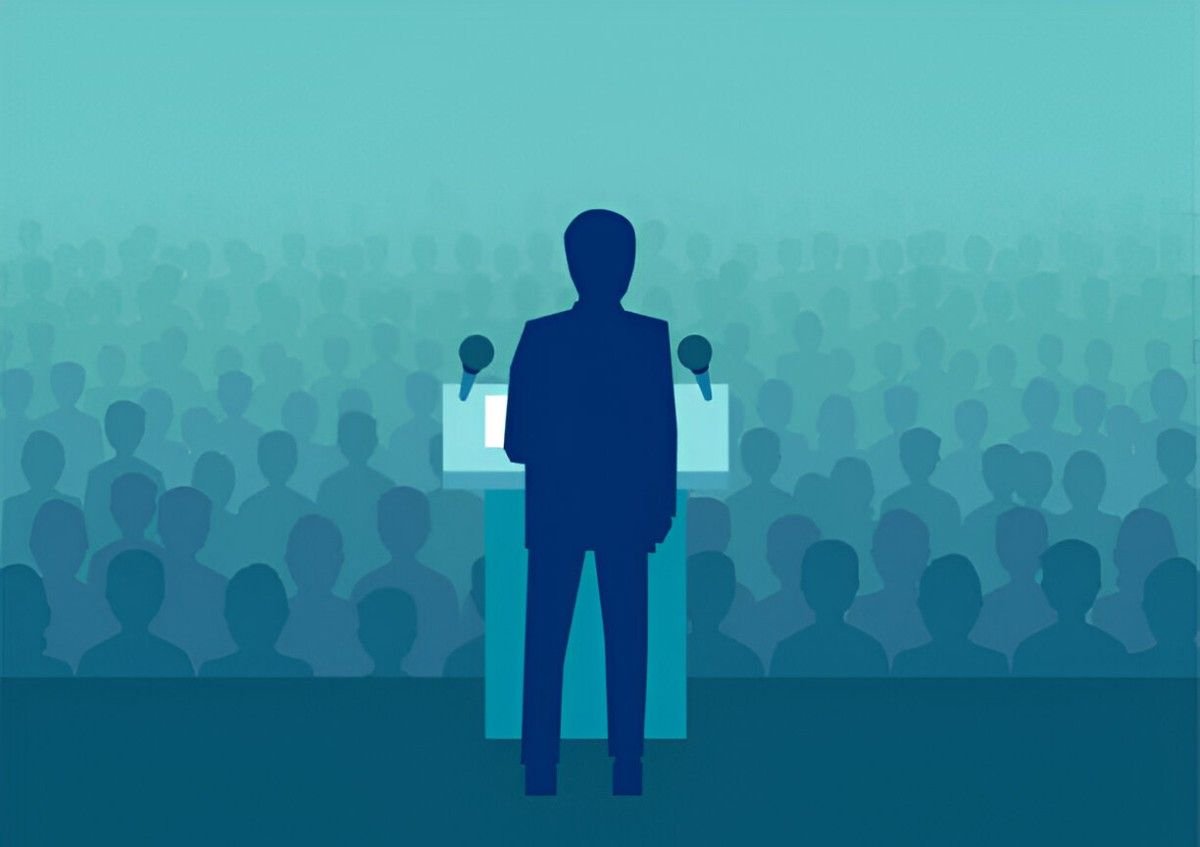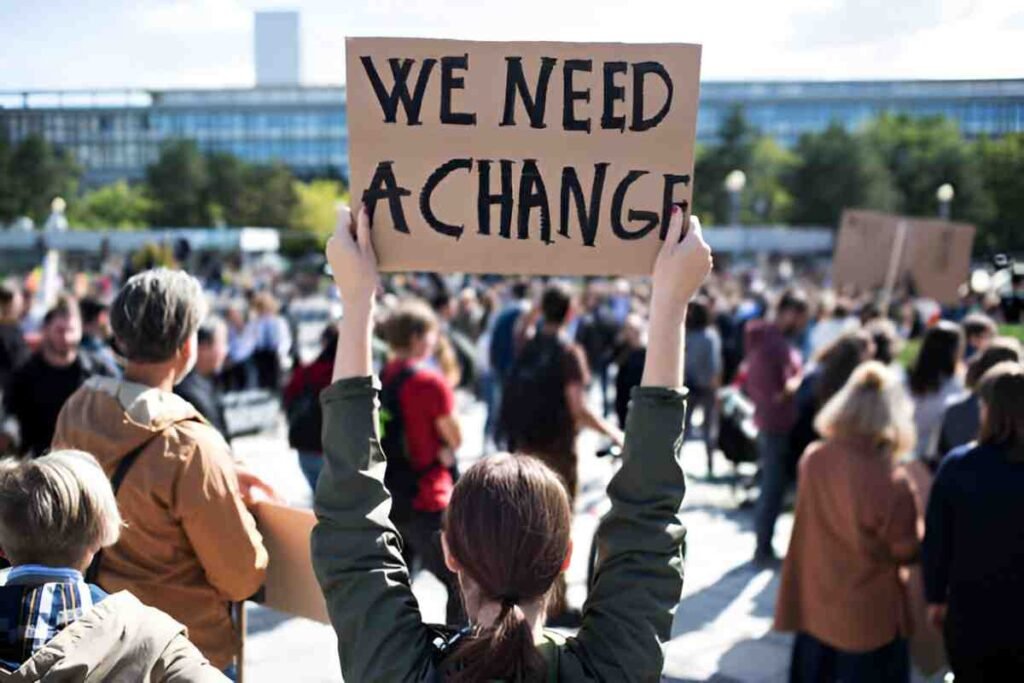In today’s interconnected world, social media has become an integral part of daily life, influencing everything from personal interactions to global politics. As a seasoned observer of political campaigns, I have seen firsthand how social media platforms like Facebook, Twitter, and Instagram have radically transformed political campaigning. In this article, I will explore how social media shapes modern political campaigns, providing an in-depth analysis of its impacts and offering a critical perspective on its benefits and challenges.
Table of Contents
The Rise of Social Media in Politics
The advent of social media marked a significant shift in the way information is disseminated and consumed. For political campaigns, this shift opened new avenues for reaching voters directly, bypassing traditional media gatekeepers. Let’s delve into how this evolution unfolded.
· Early Adoption and Evolution
Social media’s political influence began to emerge notably during the 2008 U.S. Presidential Election, when Barack Obama’s campaign leveraged digital platforms to mobilize support.
· Obama’s 2008 Campaign
The campaign’s use of social media to engage younger voters and disseminate campaign messages proved revolutionary. Tools like Facebook and Twitter allowed the campaign to create a grassroots movement, gathering support and raising funds. Observing this campaign, I was struck by the innovative use of technology to create a participatory political culture.
Since then, political campaigns worldwide have increasingly adopted social media as a core component of their strategies. The rapid evolution of these platforms continues to shape political dynamics in unforeseen ways.
Strategic Utilization of Social Media
The strategic use of social media in modern political campaigns offers numerous advantages, from targeted advertising to real-time engagement. However, these strategies also come with their own set of complexities and ethical considerations.
· Targeted Advertising and Microtargeting
One of the most powerful tools social media offers political campaigns is targeted advertising.
· Data-Driven Campaigns
Social media platforms collect vast amounts of data on user behavior and preferences. Campaigns utilize this data to create highly specific targeting strategies, a practice known as microtargeting. This approach allows campaigns to tailor messages to different segments of the electorate, increasing the likelihood of resonance. I’ve seen how microtargeting can create a sense of personalized engagement among voters, making them feel directly addressed by the campaign.
· Ethical Considerations
However, the use of personal data for political purposes raises significant ethical concerns. Questions about privacy and the potential for manipulation are critical issues that campaigns must navigate carefully. During discussions with digital marketing experts, the consensus often highlights the need for transparency and ethical guidelines to govern political advertising.
Real-Time Engagement and Communication
Social media enables real-time interaction between political candidates and voters, breaking down barriers that traditionally existed in political communication.
· Direct Communication
Candidates can now communicate directly with their followers, sharing updates, opinions, and policy positions instantly. Platforms like Twitter often serve as modern-day public squares, where political discourse occurs in real-time. During my time following various political figures on these platforms, I have noticed how direct communication creates a more immediate and personal connection with the electorate.
· Mobilization and Grassroots Activism
Social media also plays a crucial role in mobilizing supporters and organizing grassroots activities. Calls to action—whether for attending rallies, volunteering, or donating—can spread quickly and reach a wide audience. The viral nature of social media content further amplifies these efforts, creating momentum that can be pivotal for campaigns.
The Role of Influencers and Endorsements
In recent years, social media influencers have become key figures in political campaigns.
· Leveraging Influencer Reach
Influencers, with their large followings and engagement levels, offer campaigns a valuable platform to reach new audiences. By partnering with influencers who align with their values, campaigns can tap into established trust and credibility within specific communities. Attending several campaign events, I noticed the strategic placement of influencers, whose endorsements often sway public opinion.
· Authenticity and Trust
However, the effectiveness of this strategy hinges on authenticity. Voters are adept at spotting insincere endorsements, which can backfire if perceived as merely transactional. Authenticity and genuine alignment with the campaign’s values are essential for influencer partnerships to succeed.
Challenges and Controversies
While social media provides powerful tools for political campaigns, it also presents significant challenges and controversies.
· Misinformation and Fake News
The spread of misinformation and fake news on social media platforms poses a serious threat to informed political discourse.
· The Viral Spread of False Information
False information can spread rapidly on social media, often outpacing corrections and fact-checks. During election cycles, I have observed how misinformation can shape narratives and influence voter perceptions, sometimes irreversibly. Addressing this issue requires a multifaceted approach, including platform accountability and media literacy among users.
· Efforts to Combat Misinformation
Social media companies have started implementing measures to combat misinformation, such as labeling false content and promoting verified information. However, these efforts are not without controversy. Critics argue that these measures often fall short and can sometimes be perceived as biased or censorious. The balance between censoring false information and preserving free speech remains a delicate and contentious issue.
· Echo Chambers and Polarization
Another significant challenge posed by social media is the creation of echo chambers—online spaces where users are exposed predominantly to information and opinions that reinforce their existing beliefs.
· The Algorithmic Influence
Social media platforms rely on algorithms to curate content that keeps users engaged. These algorithms often prioritize content that aligns with users’ past behavior, leading to a filter bubble effect. This phenomenon, where individuals are less likely to encounter opposing viewpoints, exacerbates political polarization. Observing different online communities, it is clear that this can lead to increasingly entrenched positions and reduce opportunities for constructive dialogue.
· Mitigative Strategies
Addressing the issue of echo chambers requires both algorithmic transparency from social media companies and proactive efforts by users to seek diverse perspectives. Encouraging critical thinking and media literacy can help users navigate these digital spaces more effectively.
The Impact on Democratic Processes
The pervasive influence of social media also raises broader questions about its impact on democratic processes.
· Campaign Dynamics
The prevalence of social media in political campaigning has transformed the dynamics of electoral competition. Candidates with strong digital strategies can outmaneuver traditional campaigns, often leading to a focus on sensational or emotionally charged content to capture attention. This shift can undermine substantive policy discussions in favor of virality and optics. Analyzing recent elections, it becomes evident that while social media can democratize political participation, it also introduces new challenges to maintaining a healthy democratic discourse.
· Voter Behavior
Social media’s impact on voter behavior is profound. The rapid spread of information and the ability to engage directly with candidates influence voter opinions and decision-making processes. However, the susceptibility of voters to misinformation and the pressure of social conformity on these platforms can distort their choices.
Regulatory and Policy Responses
Given the significant impact of social media on politics, regulatory and policy responses are crucial to addressing the associated challenges.
· Legislative Measures
Various countries have introduced legislative measures to regulate political advertising on social media. These measures aim to increase transparency, such as requiring disclosures for political ads and imposing restrictions on foreign interference. Reviewing these regulations, it is apparent that while they represent steps towards accountability, they must be continuously updated to keep pace with technological advancements.
· Platform Responsibility
Social media platforms themselves bear responsibility for mitigating the negative impacts of their services. This includes implementing robust content moderation policies, enhancing user privacy protections, and fostering transparent advertising practices. The effectiveness of these measures is a growing area of scrutiny and debate.
The Future of Social Media in Political Campaigns
As social media continues to evolve, its role in political campaigns will likely expand and transform. Understanding potential future trends can help navigate the landscape more effectively.
· Emerging Technologies
Newer technologies such as artificial intelligence and machine learning will further complicate the intersection of social media and politics.
· AI-Driven Campaigns
Artificial intelligence has the potential to enhance microtargeting capabilities and optimize campaign strategies. However, it also raises ethical questions about the extent to which algorithms can manipulate voter behaviors and the transparency of such practices. Observing the increasing integration of AI in various sectors, it seems inevitable that political campaigns will also harness its capabilities, bringing both opportunities and challenges.
· Deepfakes and Synthetic Media
Another emerging concern is the rise of deepfakes—synthetic media created using AI that can convincingly alter videos and audio. The potential for deepfakes to spread disinformation and erode trust in authentic media is significant, posing new threats to electoral integrity. Addressing this will require technological countermeasures and comprehensive public awareness campaigns.
Civic Engagement and Digital Literacy
The future also holds potential for using social media to foster greater civic engagement and political participation.
· Encouraging Political Participation
Social media platforms can serve as powerful tools for encouraging political participation, particularly among younger demographics. Initiatives that promote voter registration, educate users on critical issues, and provide platforms for political dialogue can strengthen democratic processes. Engaging with youth activists and digital campaigners shows the vitality and creativity they bring to political discourse online.
· Enhancing Digital Literacy
Promoting digital literacy is crucial in helping users navigate the complexities of social media. Educating citizens on identifying credible information sources, understanding the implications of data privacy, and critically evaluating online content will empower them to participate more effectively in the digital age.
Conclusion
The impact of social media on modern political campaigns is profound and multifaceted. While it provides powerful tools for engagement, outreach, and mobilization, it also introduces significant challenges related to misinformation, polarization, and ethical considerations. By understanding these dynamics and adopting proactive strategies, political campaigns can harness the benefits of social media while mitigating its risks. Observing the ongoing transformations in the political landscape, it is evident that the relationship between social media and politics will continue to evolve, demanding constant vigilance and adaptation.





